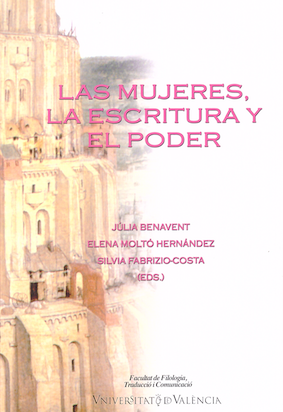Winifred Holtby: la lucha de una mujer singular
DOI:
https://doi.org/10.7203/qf-elit.v17i0.3487Keywords:
Winifred Holtby, feminism, women writing, censorship Abstract
Abstract
“If I married you, I’d have to give up every new thing that has made me a person”. This statement from Muriel, the main character in The Crowded Street (1924), the second novel by Winifred Holtby (1898-1935), might sum up the life of its author: her life choice, her feminist commitment, her dedication to literature and writing, her conviction that there were more options for women than marriage.
The following proposal seeks to consider the life and work of this British writer, a generation younger than Virginia Woolf (of whom she would publish a biography). Holtby thought of writing as a way of power and a way to disseminate concepts such as equality between men and women, racial equality or pacifism.
Winifred Holtby was born in Rudston, Yorkshire, in 1898. She experienced a period strongly marked by Victorian morality and the impact of the First World
War, which would leave an imprint both in her private life and work. Showing great narrative skills at an early age, Holtby would enroll at Somerville College, Oxford in 1917, but would abandon her studies a year later to serve in France in the Women’s Auxiliary Corps until the end of the war. On her return, she met the well known writer Vera Brittain, with whom she would have a fruitful and productive relationship (Clay, 2003) both personally and professionally, and together they would promote their feminist and pacifist ideas (Shaw, 1997) around the world, especially in South Africa (Regan, 2008), where women were living in patriarchy.
While it a great success in English, publishing several novels that have been made into films and television series, essays, newspaper articles and biographical works, she died at 37 before they could taste success. However, Holtby has only twice been translated into Spanish, the third of her novels, Mandoa, Mandoa (1933), was censored (Santamaría, 2000) in our country during the Franco era and has not been published to date. With my recent publication (Zaragoza, 2011) of an anthology of short stories about women by this author, I would like to pay tribute to a woman who should still today stand out as an example for many women.
 Downloads
Downloads
Downloads
How to Cite
-
Abstract383
-
PDF (Español)220
Issue
Section
License
 Este obra está bajo una licencia de Creative Commons Reconocimiento-NoComercial-SinObraDerivada 4.0 Internacional.
Este obra está bajo una licencia de Creative Commons Reconocimiento-NoComercial-SinObraDerivada 4.0 Internacional.
Authors who publish with this journal agree to the following terms:
- Authors retain copyright and grant the journal right of first publication with the work simultaneously licensed under a Creative Commons Attribution License that allows others to share the work with an acknowledgement of the work's authorship and initial publication in this journal.
- Authors are able to enter into separate, additional contractual arrangements for the non-exclusive distribution of the journal's published version of the work (e.g., post it to an institutional repository or publish it in a book), with an acknowledgement of its initial publication in this journal.
- Authors are permitted and encouraged to post their work online (e.g., in institutional repositories or on their website) prior to and during the submission process, as it can lead to productive exchanges, as well as earlier and greater citation of published work (See The Effect of Open Access).




